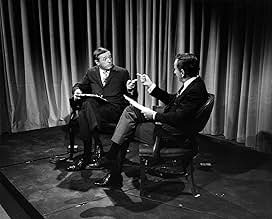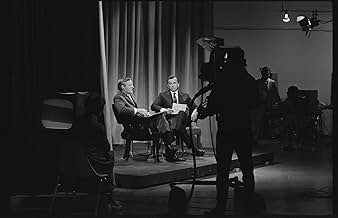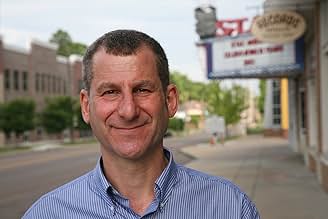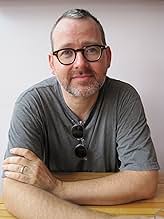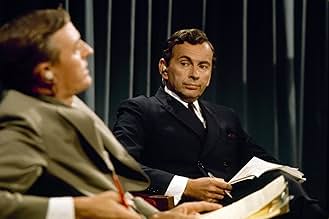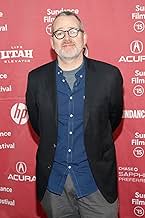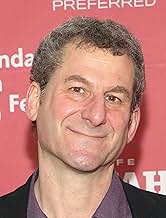IMDb RATING
7.6/10
6.6K
YOUR RATING
A documentary on the series of televised debates in 1968 between liberal Gore Vidal and conservative William F. Buckley.A documentary on the series of televised debates in 1968 between liberal Gore Vidal and conservative William F. Buckley.A documentary on the series of televised debates in 1968 between liberal Gore Vidal and conservative William F. Buckley.
- Awards
- 6 wins & 27 nominations total
Gore Vidal
- Self - Debater
- (archive footage)
William F. Buckley
- Self - Debater
- (archive footage)
Noam Chomsky
- Self
- (archive footage)
Patricia Buckley
- Self - Buckley's Wife
- (archive footage)
Sam Donaldson
- Self - Correspondent, ABC News
- (archive footage)
Howard K. Smith
- Self - Anchor, ABC News
- (archive footage)
- Directors
- Writers
- All cast & crew
- Production, box office & more at IMDbPro
Storyline
Did you know
- TriviaThe film-makers shot an interview with Gore Vidal, but ultimately decided not to use it, so he only appears in archive footage.
- Quotes
Richard Wald: ABC was the third of the three networks. It would've been fourth, but there were only three.
- Crazy creditsThere is a short scene after the credits showing footage of an interview with Buckley.
- ConnectionsEdited into Independent Lens: Best of Enemies (2016)
Featured review
Most people who come to Best of Enemies knows what the state of news media coverage is, especially in the realm of cable news. It's been bad for a long time (there's a very brief excerpt of the time when Jon Stewart called out Crossfire for the very problems that can be seem sprouting up in the film in the end credits). But what's so great about Best of Enemies is how you see that the groundwork laid at the beginning for what's been twisted into the barking (less talking) heads in coverage of the daily events (let alone political conventions) is seen as relatively cordial and sophisticated. Sure, William F. Buckley Jr and Gore Vidal might not be everyone's idea of a good time with a glass of beer (though that depends on what class system rank you're in), but, perhaps except for one major outburst from Buckley - which haunted him for years (or he just became obsessed with it like a cry-baby, you decide) - they were so evenly matched as far as their scope of intellectual prowess that it boggles the mind.
Over the course of Best of Enemies we get to see what these two men were like, before the debates in 1968 and then after, and there's this monumental point of view (probably totally correct) that the directors give which is that TV changed things for the public so much that two people arguing about this or that could change things, like concretely in people's minds. But past it being of interest in a sociological or political science interest is the emphasis that these two men *really* did not like one another. Perhaps there was some unspoken level of respect, that sort of look of 'hey, let's give them a show' (and apparently after one of the tenser debates, Buckley leaned over and almost paid a compliment that that's what they did). But watching the scenes here I can't imagine anyone walking away thinking it was just an act, and yet at the same time I think there was an element of the theatrical; one of the revelations is that Vidal tested some of his retorts to Buckley on staffers or crew before filming.
The documentary may be borderline on too much context in a way - the talking heads from (the late) Christopher Hitchens and Dick Cavett and Buckley's biographer shine some light on certain aspects of their personalities (how personally Buckley took things, and how Vidal kept things under lock and key what he showed on his face). It can even be said there isn't quite enough of the debates in the film, and that's the one thing keeping it from being a 10 out of 10. But sometimes the best movies are never long enough, and this is a case where I could watch another 30 to 60 minutes of this story, especially as it's set in the tumultuous time of 1968 at Republican and Democratic conventions (the latter being when Chicago went into a series of riots). As long as the filmmakers keep the focus on these two men looking at each other and sniping in sardonic and totally dead-serious ways, the film works wonders. And you also get thrown into the mood of the period through music that almost has the buzz of technology, of TV electronic-waves and such.
If the medium is/was the message, then having two men argue at a time when there were only three channels with ABC hosting it had to do something different to compete with Cronkite and the like (and as one person says in the doc, argument is sugar ans we are the flies) made the message clear: conflict and drama makes for much more enticing (and perhaps simply easier) viewing than watching straight, down-the-middle factual news reporting. Who needs the facts when you got the paragon of the Conservative right (Buckley, by the way, has that sort of smile and grin that is both charming and kind of creepy) and of the intellectual, hardcore left (Vidal, with his books making him like an unofficial if sometimes controversial arbiter of history). Check it out - and ponder if either of these men could last a minute on Fox news or even CNN.
Over the course of Best of Enemies we get to see what these two men were like, before the debates in 1968 and then after, and there's this monumental point of view (probably totally correct) that the directors give which is that TV changed things for the public so much that two people arguing about this or that could change things, like concretely in people's minds. But past it being of interest in a sociological or political science interest is the emphasis that these two men *really* did not like one another. Perhaps there was some unspoken level of respect, that sort of look of 'hey, let's give them a show' (and apparently after one of the tenser debates, Buckley leaned over and almost paid a compliment that that's what they did). But watching the scenes here I can't imagine anyone walking away thinking it was just an act, and yet at the same time I think there was an element of the theatrical; one of the revelations is that Vidal tested some of his retorts to Buckley on staffers or crew before filming.
The documentary may be borderline on too much context in a way - the talking heads from (the late) Christopher Hitchens and Dick Cavett and Buckley's biographer shine some light on certain aspects of their personalities (how personally Buckley took things, and how Vidal kept things under lock and key what he showed on his face). It can even be said there isn't quite enough of the debates in the film, and that's the one thing keeping it from being a 10 out of 10. But sometimes the best movies are never long enough, and this is a case where I could watch another 30 to 60 minutes of this story, especially as it's set in the tumultuous time of 1968 at Republican and Democratic conventions (the latter being when Chicago went into a series of riots). As long as the filmmakers keep the focus on these two men looking at each other and sniping in sardonic and totally dead-serious ways, the film works wonders. And you also get thrown into the mood of the period through music that almost has the buzz of technology, of TV electronic-waves and such.
If the medium is/was the message, then having two men argue at a time when there were only three channels with ABC hosting it had to do something different to compete with Cronkite and the like (and as one person says in the doc, argument is sugar ans we are the flies) made the message clear: conflict and drama makes for much more enticing (and perhaps simply easier) viewing than watching straight, down-the-middle factual news reporting. Who needs the facts when you got the paragon of the Conservative right (Buckley, by the way, has that sort of smile and grin that is both charming and kind of creepy) and of the intellectual, hardcore left (Vidal, with his books making him like an unofficial if sometimes controversial arbiter of history). Check it out - and ponder if either of these men could last a minute on Fox news or even CNN.
- Quinoa1984
- Feb 3, 2016
- Permalink
- How long is Best of Enemies: Buckley vs. Vidal?Powered by Alexa
Details
- Release date
- Country of origin
- Official site
- Language
- Also known as
- Best of Enemies
- Production companies
- See more company credits at IMDbPro
Box office
- Budget
- $1,000,000 (estimated)
- Gross US & Canada
- $892,802
- Opening weekend US & Canada
- $50,378
- Aug 2, 2015
- Gross worldwide
- $892,802
- Runtime1 hour 27 minutes
- Color
Contribute to this page
Suggest an edit or add missing content

Top Gap
By what name was Best of Enemies: Buckley vs. Vidal (2015) officially released in India in English?
Answer

